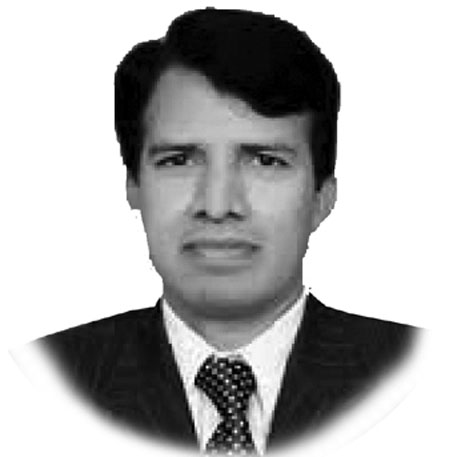Dr Muhammad Khan
Since last few years, the Office of United
Nations High Commissioner for Human
Rights has very forthcoming and dynamic in highlighting the world-wide state of human rights. Besides other parts of the world, the Office of the United Nations High Commissioner for Human Rights (OHCHR) has been very fair in highlighting the worst form of human rights in India-occupied Kashmir (IoK). In its Press briefing on 29 October 2019, Rupert Colville, the spokesperson for the UN High Commissioner for Human Rights, highlighted the post 5 August 2019 human rights situation in the besieged state. In its press release, OHCHR has shown its serious concern over the massive human rights violations and deprivations in the occupied state. OHCHR has emphasized the Indian Government “to unlock the situation and fully restore the rights that are currently being denied.” India did not pay any attention to such demands, made either from OHCHR or other organizations. This press release was issued just three-days before imposition of Indian decision to annex the state territories with Indian Union in parts.
The spokesperson of OHCHR has criticized the undeclared state of curfew imposed by India in IoK. The curfew is indeed, “preventing the free movement of people, as well as hampering their ability to exercise their right to peaceful assembly, and restricting their rights to health, education and freedom of religion and belief.” India is found violating the human rights on multiple fronts; it has besieged the masses and leadership of IoK and stopped provision of basic necessities of life for the soul purpose that Kashmiris should surrender in front of Indian authorities. Besides, India demand that Kashmiris must give up their struggle for their UN mandated right of self-determination. OHCHR has also highlighted the human right abuses, Indian security forces have committed during last three months, after it has imposed curfew in IoK. It has been critical to excessive use of force including the use of pellet-firing shotguns, tear gas and rubber bullets by security forces during sporadic protests by Kashmiri youth. Very less is known on account of actual killings, torture, arrests and rapes in IoK, since there is total clampdown in entire occupied state. OHCHR has shown its serious concern over the Indian Army “threatening residents” to pose for the normalcy in their businesses and routine once asked.
Besides, almost all political and civil society leaders, including three former Chief Ministers of Jammu and Kashmir, have been detained on a preventative basis.” It is also worried over the reports about the torture and ill-treatment of people, who are held in detention in various detention centres. OHCHR has once again demanded independent and impartial investigation of all such human rights violations. “Torture is totally and unequivocally prohibited under international law.” In June 2018, in its 49-page report, OHCHR gave details of details human rights violations and abuses in Jammu and Kashmir. It was the first ever report issued by the UN on the human rights situation in the state. It was clearly mentioned in that report, “The political dimensions of the dispute between India and Pakistan have long been centre-stage, but this is not a conflict frozen in time. It is a conflict that has robbed millions of their basic human rights, and continues to this day to inflict untold suffering.” In that detail report, guarantees were sought for ending the cycles of violence in IoK and also accountability of the past human rights violations and abuses. That report asked UN for the establishment of a fair Commission of Inquiry to conduct a comprehensive independent international investigation into allegations of human rights violations in Kashmir.
On 8 July 2019, another report was initiated by OHCHR, criticizing the Indian Government for continued human rights violations in IoK and failure of UN and major powers for not establishing a Commission of Inquiry, demanded in its 2018 report. India was encouraged by procrastination of major powers, international community and above all the UN over the OHCHR reports about the ground realities in IoK. In its current press release, OHCHR has criticized the communication and internet disconnection in IoK, highlighting that “Media outlets continue to face undue restrictions” with dozens of local journalists arrested and many youth killed. There has been question mark over the role of Indian Supreme Court, which proved to be totally manipulated and controlled by BJP and RSS. Indian Supreme Court could have given a fair hearing and trail over the Indian Government’s illegal, unilateral and contradictory decision of state’s annexation with Indian Union. Besides, OHCHR finds serious issues with respect to impunity for the Indian security forces, through discriminatory laws like Armed Forces Special Powers Act and Public Safety Act. The besieged people of India-occupied Kashmir demands a practical role of United Nations and international community to end the human rights violations, restoration of their special status and resolution of the dispute as per their wishes in the light of UN resolutions. The People of Jammu and Kashmir and Pakistan are indebted to the Office of the United Nations High Commissioner for Human Rights for its fair role for highlighting the massive human rights violations in the IoK.
— The writer is Professor of Politics and International Relations at International Islamic University, Islamabad.










